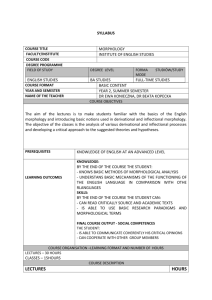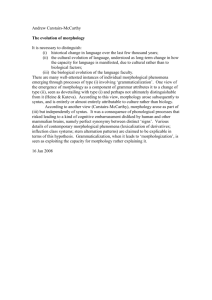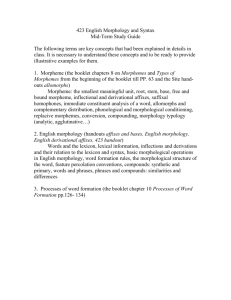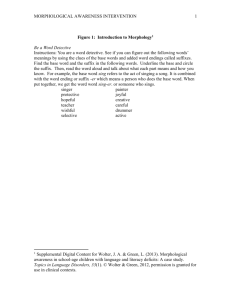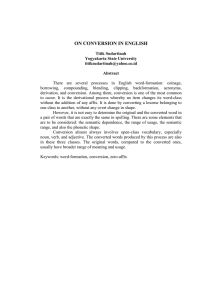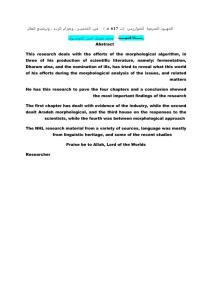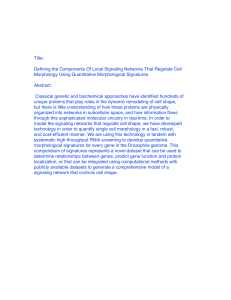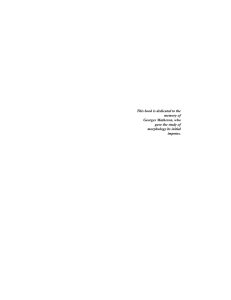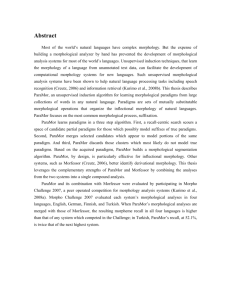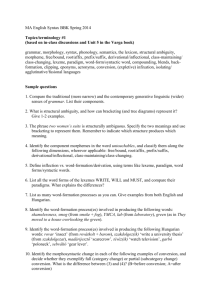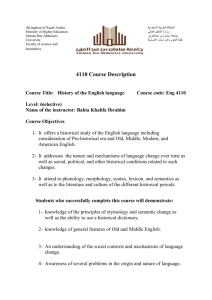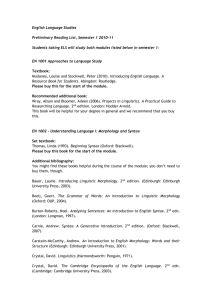syllabus
advertisement
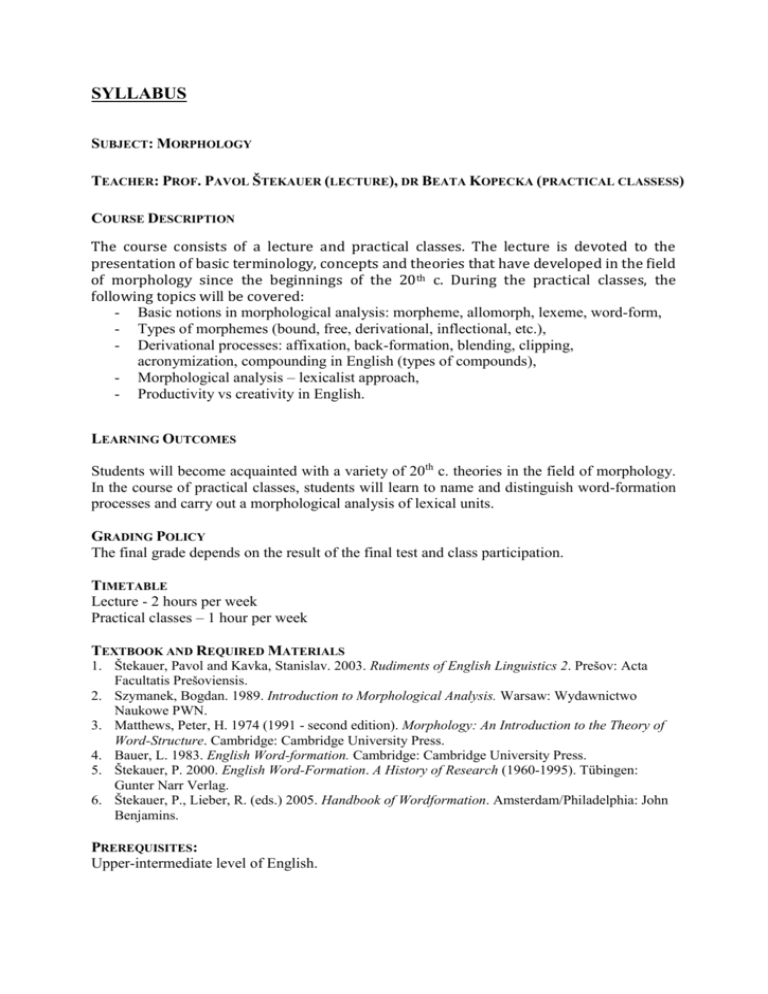
SYLLABUS SUBJECT: MORPHOLOGY TEACHER: PROF. PAVOL ŠTEKAUER (LECTURE), DR BEATA KOPECKA (PRACTICAL CLASSESS) COURSE DESCRIPTION The course consists of a lecture and practical classes. The lecture is devoted to the presentation of basic terminology, concepts and theories that have developed in the field of morphology since the beginnings of the 20th c. During the practical classes, the following topics will be covered: - Basic notions in morphological analysis: morpheme, allomorph, lexeme, word-form, - Types of morphemes (bound, free, derivational, inflectional, etc.), - Derivational processes: affixation, back-formation, blending, clipping, acronymization, compounding in English (types of compounds), - Morphological analysis – lexicalist approach, - Productivity vs creativity in English. LEARNING OUTCOMES Students will become acquainted with a variety of 20th c. theories in the field of morphology. In the course of practical classes, students will learn to name and distinguish word-formation processes and carry out a morphological analysis of lexical units. GRADING POLICY The final grade depends on the result of the final test and class participation. TIMETABLE Lecture - 2 hours per week Practical classes – 1 hour per week TEXTBOOK AND REQUIRED MATERIALS 1. Štekauer, Pavol and Kavka, Stanislav. 2003. Rudiments of English Linguistics 2. Prešov: Acta Facultatis Prešoviensis. 2. Szymanek, Bogdan. 1989. Introduction to Morphological Analysis. Warsaw: Wydawnictwo Naukowe PWN. 3. Matthews, Peter, H. 1974 (1991 - second edition). Morphology: An Introduction to the Theory of Word-Structure. Cambridge: Cambridge University Press. 4. Bauer, L. 1983. English Word-formation. Cambridge: Cambridge University Press. 5. Štekauer, P. 2000. English Word-Formation. A History of Research (1960-1995). Tübingen: Gunter Narr Verlag. 6. Štekauer, P., Lieber, R. (eds.) 2005. Handbook of Wordformation. Amsterdam/Philadelphia: John Benjamins. PREREQUISITES: Upper-intermediate level of English.
